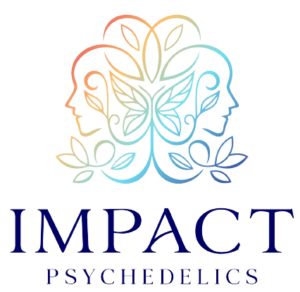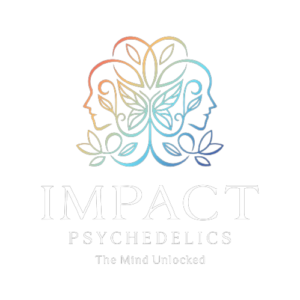
Ketamine Dose for Depression: Understanding the Optimal Treatment
Depression is a serious mental health condition that affects millions of people worldwide. With 8.4% of all U.S. adults have experienced at least one major depressive episode in a given year, it is important to consider effective treatment options.
While traditional treatments such as antidepressants and psychotherapy work for some people, they don’t always provide the relief needed to manage depression symptoms. Recently, ketamine has emerged as a potential treatment option with promising results. In this article, we will discuss how ketamine works and what factors influence its optimal dose for treating depression.
Understanding Ketamine and its Mechanism of Action
Understanding ketamine and how it acts on the brain is essential for understanding how it might be used as a treatment option.
What Is Ketamine?
Ketamine is a general anesthetic that has been widely used in medical settings since the 1970s. It is considered a dissociative drug, meaning it can produce feelings of detachment from one’s environment and body.
How Does Ketamine Work?
Ketamine works by blocking NMDA receptors in the brain, which regulate mood and emotional processing. Blocking these receptors increases glutamate, a neurotransmitter involved in learning and memory formation, as well as dopamine and norepinephrine release, which are both important for regulating our emotions. The result is a rapid antidepressant effect that can last for several days.
The Impact of Ketamine on Brain Chemistry
Ketamine has been found to alter the brain’s natural chemistry, with studies showing changes in brain function following treatment. This includes increased connectivity between different parts of the brain and decreased neural activity in areas associated with negative emotions and rumination. Plus, with its positive effects on neuroplasticity, ketamine may help improve the brain’s ability to form new neural pathways and process information more efficiently.
The Potential Benefits of Ketamine for Depression
Ketamine has been found to have a rapid-acting antidepressant effect, with some people experiencing relief within hours or days after receiving treatment. Besides Lithium, it is also thought to reduce suicidal ideation more effectively than most other antidepressant treatments.
Lastly, patients who suffer from treatment-resistant depression, that is depression that fails to respond to at least two treatment methods, may benefit from ketamine treatment.
The Different Forms of Ketamine for Depression Treatment
Ketamine can be administered in a variety of ways, depending on the patient’s needs and preferences. These include:
Intravenous Ketamine
Intravenous ketamine is administered into the veins and is typically used for quick relief from treatment-resistant depression symptoms. It can be given as an IV ketamine infusion, which is over several hours, or as an IV ketamine bolus, which is a single injection over a short time frame. Regardless, both have to be administered under medical supervision to monitor for any adverse reactions.
Intranasal Ketamine
Intranasal ketamine Esketamine (Spravato) is administered through the nose and is typically used for the treatment of treatment-resistant depression. A single dose is given over two weeks and monitored for any side effects.
Compared to the bioavailability of intravenous ketamine (100%), intranasal ketamine is estimated to have a bioavailability of 58%. Therefore, there is less available to be absorbed into the bloodstream and may require higher doses for effective treatment.
Sublingual Ketamine
Sublingual ketamine is administered under the tongue and is typically used for long-term relief from treatment-resistant depression symptoms. The patient holds the liquid formulation under their tongue until it is completely absorbed, which usually takes about 10 minutes.
Oral Ketamine
Oral ketamine is typically taken as capsules or tablets and is generally considered to be a less effective treatment option than other forms of administration.
Ketamine-Assisted Psychotherapy
Ketamine-assisted psychotherapy is a form of therapy in which ketamine is used to address underlying psychological issues that can cause and/or exacerbate treatment-resistant depression symptoms. It involves the patient being guided through intense experiences while under the influence of ketamine, allowing them to confront issues more deeply than can be done in regular psychotherapy sessions. Intention-setting can help you get the most of your ketamine psychotherapy sessions.
The Factors That Influence Ketamine Dose
When determining the amount of ketamine to be administered, a variety of factors are taken into consideration. These include:
The Severity of Depression
The more severe the depression, the higher the ketamine dose required. This is because greater levels of depression are associated with lower levels of neurotransmitters in the brain, which require larger amounts of ketamine to restore balance. Despite this, every practitioner should adjust the dose based on how each patient responds to the treatment.
The Age and Gender of the Patient
According to the Frontiers of a Neuroscience journal, after undergoing a ketamine infusion, male participants in the study noted heightened levels of depersonalization and amnesia. Interestingly, this effect was amplified by age—the younger individuals experienced more intense symptoms than their older counterparts.
The Weight of the Patient
Generally, heavier patients will require higher ketamine doses to achieve an equal therapeutic effect as lighter patients. This is because greater body mass requires more ketamine to produce the desired response. Plus the dosage rate may need to be adjusted for a patient’s weight.
The Medical History of the Patient
Certain medical conditions, such as kidney or liver disease, can affect how the body metabolizes ketamine. Therefore, it is essential to assess a patient’s medical history before administering any drugs. Furthermore, ketamine can interact with other drugs such as Abilify (aripiprazole) and Prozac (fluoxetine). Therefore, it is important to check for any potential interactions that could lead to adverse reactions.
The Response to Previous Ketamine Treatments
If a patient has responded well to previous ketamine treatments, the same dose can be used for subsequent sessions. However, if a patient responds poorly to the drug, then their doctor may adjust the dose accordingly or even choose a different treatment option.
The Recommended Ketamine Dose for Depression Treatment
The Standard Dosing Protocol
The standard dosing protocol for depression typically involves 0.5 mg/kg of ketamine per session, administered over two weeks and monitored for any side effects. This particular dose is considered to be safe and effective and was established based on clinical studies of ketamine’s effects on depression.
The Rationale Behind the Standard Dosing Protocol
Ketamine has been shown to produce an antidepressant effect at doses as low as 0.06 mg/kg, yet higher ketamine doses provide more profound and sustained relief from depressive symptoms. Therefore, the 0.5 mg/kg dose is considered to be a safe and effective option for treating depression.
The Potential Risks and Side Effects of Ketamine Treatment
Ketamine is considered to be a safe and well-tolerated drug when used at the recommended doses. However, it can still cause side effects such as:
- confusion
- disorientation
- visual disturbances
- and temporary changes in mood or behavior
It is important to note that these side effects are usually mild and only last for a short period. For this reason, all patients should be closely monitored during and after ketamine treatment to ensure their safety.
The Benefits of Personalized Ketamine Dosing
The Limitations of the Standard Dosing Protocol
Although the standard dosing protocol is a safe and effective option for treating depression, it does not take into account the individual needs of each patient. This means that some patients may require higher or lower doses to achieve the desired outcome.
The Benefits of Individualized Dosing
By personalizing ketamine treatments to meet a patient’s individual needs, practitioners can improve the outcome and reduce the risk of adverse side effects. This is because patients can be accurately dosed based on their medical history, body weight, age, gender, and response to previous treatments.
The Importance of Patient Monitoring and Follow-Up
Practitioners must also ensure that all patients are properly monitored and followed up during and after ketamine treatments. This is especially important for monitoring the response to treatment, as well as any potential side effects or adverse reactions. It is also essential to check in with the patient regularly after their final treatment session to assess their current symptoms and adjust the dose accordingly if necessary.
The Process of Ketamine Treatment for Depression
The process of treating depression with ketamine involves several steps, from the initial assessment to the post-treatment evaluation. The key elements include:
The Initial Assessment
This involves gathering information about the patient’s medical history, current symptoms, and any previous treatments they have tried. For example, if the patient also shows symptoms of anxiety, you can also aim to address that as well.
The Preparation for Treatment
During this stage, practitioners will discuss potential risks, side effects, and contraindications with the patient. They may also conduct lab tests and ask questions to ensure that ketamine is the right treatment option for them.
The Administration of Ketamine
Depending on the dose prescribed by their doctor, patients may receive a single injection or multiple infusions of ketamine over several weeks or months.
The Post-Treatment Evaluation and Follow-Up
Following ketamine treatments, doctors must monitor their patients closely for any changes in mood or behavior. They should also track the patient’s response to treatment and adjust the dose if necessary. During follow-up visits, they can also provide additional support and resources as needed.
The Efficacy of Ketamine for Depression Treatment
Ketamine has been extensively studied for its effectiveness in treating depression and other mental health conditions.
The Results of Clinical Trials
Much clinical research has reflected positive results when it comes to the efficacy of ketamine for treating depression. For instance, one recent study showed that a single dose of 0.5 mg/kg significantly reduced symptoms in a variety of patients with major depressive disorder (MDD).
The Long-Term Effects of Ketamine Treatment
While research has shown that ketamine is effective in treating treatment-resistant major depression, there is still an ongoing debate about its long-term effects. Some studies have suggested that repeated treatments may be safe and beneficial over time, while others have indicated that the effects may wear off after several weeks or months. More research is needed to better understand the long-term effects of ketamine therapy.
The Potential for Relapse
Even with successful treatment, some patients may experience a relapse of their depression symptoms after the ketamine effects have worn off. To reduce the risk of relapse, practitioners should continue to monitor their patients and provide them with psychological support if needed.
The Safety of Ketamine for Depression Treatment
Ketamine is generally considered safe when administered correctly and monitored closely. However, there are potential risks and side effects that must be taken into consideration before beginning treatment.
The Potential Risks and Side Effects of Ketamine
The most common side effects associated with ketamine include:
- dizziness
- confusion
- drowsiness
- nausea
- and vomiting.
More serious side effects can also occur in some cases such as:
- hallucinations
- increased heart rate or blood pressure
- trouble breathing
- chest pain
- irregular heartbeat
- and seizures.
The Precautions That Should Be Taken During Treatment
It is important to closely monitor patients while they are receiving ketamine treatments, as well as afterward. This can help to reduce the risk of serious side effects or adverse reactions. Additionally, practitioners should only use medications and doses that have been approved by the FDA for treating depression.
The Contraindications for Ketamine Treatment
Ketamine should not be used in people with certain medical conditions such as glaucoma, heart disease, hypertension (high blood pressure), or an overactive thyroid. It should also not be used if the patient has taken any MAOI drugs within the two weeks before treatment.
The Future of Ketamine for Depression Treatment
The Ongoing Research on Ketamine
As research continues to explore the potential benefits and risks of ketamine treatment, it is important to remember that it must be used with caution. Patients should only be treated with ketamine if they have been approved by their doctor and if the risks, benefits, and potential side effects have been carefully considered.
The Role of Ketamine in the Broader Context of Depression Treatment
Ketamine treatment can play an important role in improving symptoms of depression, especially when combined with psychotherapy and support from family and friends. It is important to remember, however, that ketamine should only be used as part of a comprehensive treatment plan and with close monitoring from a qualified practitioner.
Conclusion
In conclusion, the potential of ketamine as a treatment for depression is promising. With further research and improved safety protocols, it may become an effective tool in treating a major depressive disorder in the future. However, it is important to remember that individualized dosing and patient monitoring is essential for achieving long-term success with this type of treatment. Ultimately, the role of ketamine in the context of depression treatment must be examined carefully before it can be considered a viable option for all patients.
Impact Psychedelics is devoted to providing you with successful, psychedelic treatment that allows you to manage and/or overcome mental health issues such as Major Depressive Disorder (MDD).
We strongly believe in the power of ketamine therapy for those who have not found success with other treatments. Our team works diligently towards advancing revolutionary breakthroughs within the realm of mental health care – so if you’re interested in learning more about how we can help craft a suitable plan for your needs, don’t hesitate to reach out!

